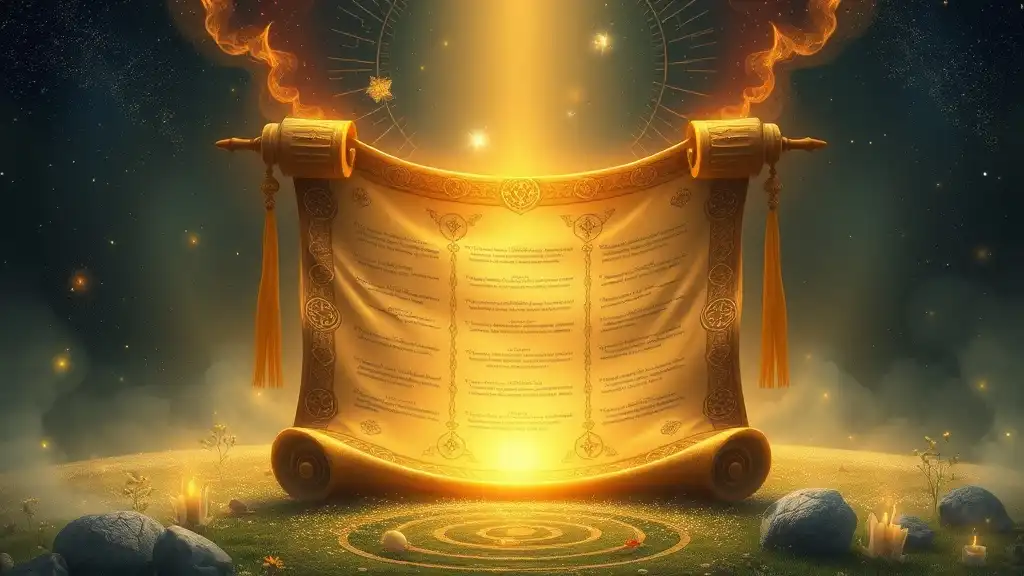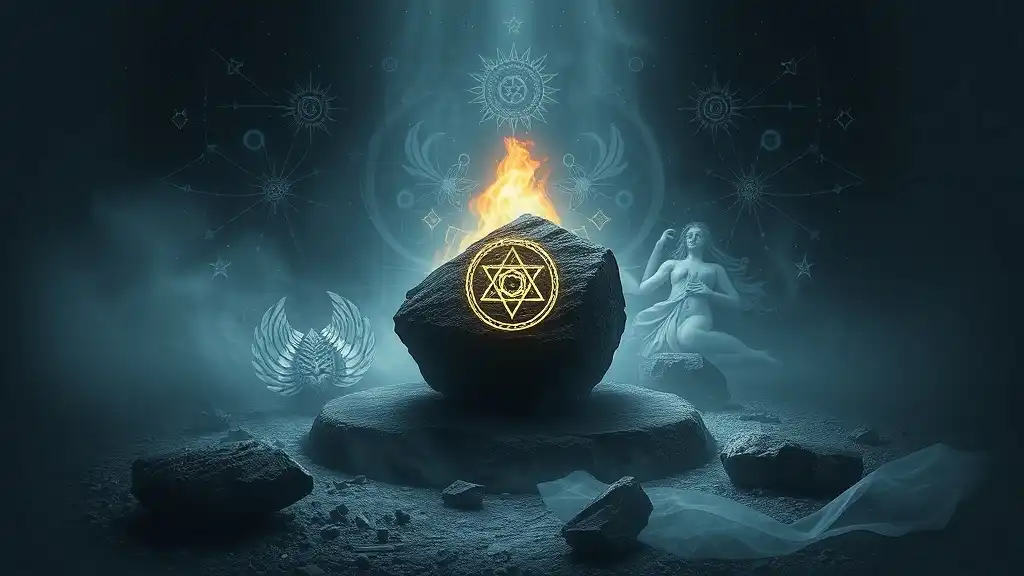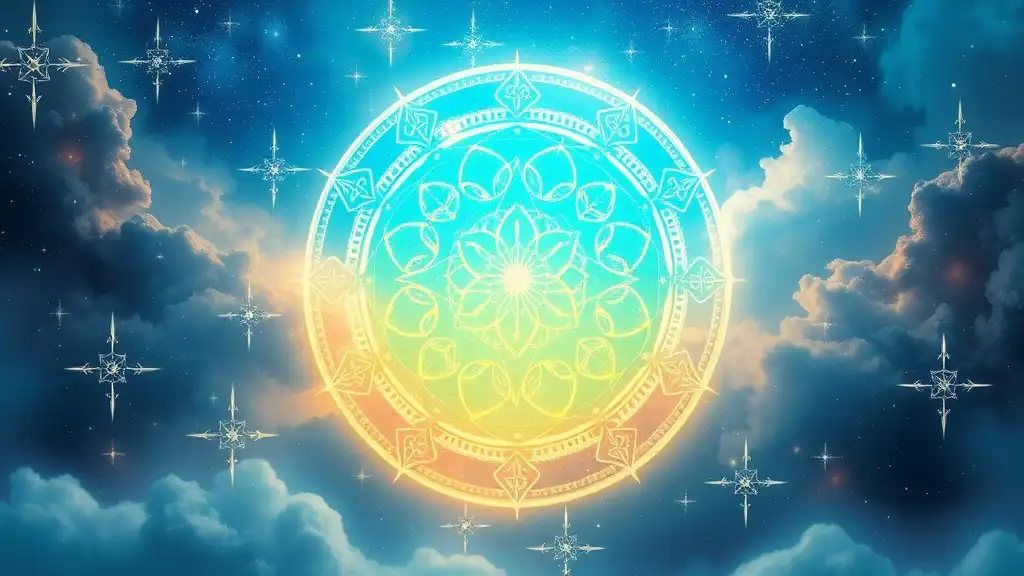Scrolls have served as powerful symbols throughout history, embodying a deep connection to the spiritual and the sacred. In many cultures, they are more than just pieces of parchment; they represent carriers of wisdom, tools for divine communication, and vessels of hidden truths. This article delves into the profound spiritual meanings associated with scrolls, exploring their historical contexts, cultural significance, and their roles in contemporary spiritual practices.
The Historical Context of Scrolls
The origins of scrolls can be traced back to ancient civilizations, such as Mesopotamia, Egypt, and China, where they were used for recording texts, rituals, and the wisdom of the ages. Initially crafted from materials like papyrus and animal skins, scrolls were revolutionized the way knowledge was preserved and conveyed. They were indispensable in religious contexts, not only for documenting sacred texts but also for encasing the philosophies of entire cultures.
In religious traditions, scrolls played a vital role. They served as carriers of spiritual teachings and laws, ensuring that spiritual truths were passed down generations. Ancient scrolls, whether inscribed with laws, hymns, or mystical revelations, were gateways to the knowledge passed from divine sources, cementing their place in the spiritual fabric of human history.

Symbolism of the Scroll in Different Cultures
Ancient Egypt
In Ancient Egypt, scrolls held significant spiritual value, particularly in funerary practices. The Book of the Dead, a collection of spells and texts designed to guide the deceased through the afterlife, was often inscribed on scrolls. Here, the scroll symbolizes a bridge between life and death, embodying the protective wisdom needed for a successful spiritual journey. The preservation of these texts was both a practical and sacred act, ensuring that the dead could navigate the spiritual realms with the wisdom of the ancients.
Judaism
Judaism places profound significance on scrolls, particularly the Torah, which is central to Jewish faith and practice. The Torah scroll, meticulously handwritten, embodies the essence of divine law and moral instruction. Each letter, each word, is considered sacred, representing a direct link to God’s will. The act of reading from the Torah scroll during religious ceremonies is imbued with a deep spirituality, reinforcing the belief that the Word itself is alive and transformative.
Christianity
In Christianity, scrolls represent the early scriptures and teachings of Christ. The Gospel scrolls, used in the dissemination of Jesus' teachings, signify the transition from oral to written traditions in spirituality. They encompass the narratives that foster faith and practice, illustrating how texts become vehicles for divine inspiration. The scrolls remind practitioners of the continuity of spiritual messages throughout history, emphasizing their enduring relevance.
Eastern Philosophies
In Eastern philosophical practices, particularly in Taoism, scrolls serve as both artistic expression and spiritual guide. Texts like the Tao Te Ching were written and disseminated on scrolls, encapsulating profound insights on living in harmony with the universe. The aesthetic quality of the scroll, often adorned with intricate calligraphy and illustrations, intertwines the natural and spiritual worlds, inviting practitioners to celebrate the beauty of existence.

Spiritual Meaning of Scrolls
Knowledge and Wisdom
At the heart of the scroll’s spiritual significance is its role as a repository of sacred knowledge. Scrolls often symbolize the quest for understanding and enlightenment, acting as guides that lead seekers towards greater truths. The concept that knowledge is scroll-like suggests that it is always accessible, waiting to unfurl for those eager to learn. Reading a scroll engages both the mind and spirit, inviting reflection and depth of understanding.
Communication with the Divine
Scrolls also serve as powerful mediums for communication with the divine. They symbolize the sacred dialogue between humanity and the cosmos. Whether through prayers, meditations, or rituals inscribed on scrolls, they facilitate divine connection and insight. The act of unrolling a scroll might represent the unfolding of spiritual wisdom or divine messages that were previously hidden, emphasizing the dynamic nature of this communication.
Secrets and Mysteries
The hidden messages contained within scrolls often embody the mysteries of existence. Scrolls may symbolize the secrets of the universe, waiting for the right seeker to unveil them. This notion invites individuals to explore their spiritual journey with patience and curiosity, understanding that some truths may only reveal themselves over time. The allure of the scroll lies in its promise of discovery, demanding both respect and reverence for what remains unseen.

Scrolls in Modern Spiritual Practices
Use in Meditation and Reflection
In contemporary spiritual practices, scrolls take on new forms. Many modern practitioners use scrolls as tools for meditation and reflection. Creating personal scrolls with affirmations, intentions, or sacred symbols can deepen one’s spiritual practices. These scrolls become personal manifestations of one’s journey, serving as daily reminders of aspirations and values, thus reinforcing the individual's connection to the spiritual community.
Art and Manifestation
Additionally, the art of crafting scrolls can also serve as a means of manifestation. By creating beautifully adorned scrolls filled with aspirations or visions for one’s life, individuals can engage in a sacred act of creation. This can transform the mundane into the extraordinary, inviting energy and intention into the physical world. The scroll itself becomes a canvas for one’s spiritual dreams, embodying the essence of what they wish to attract.

Personal Insights and Reflections
As you reflect on the significance of scrolls in your own life, consider how they resonate with your personal spiritual journey. What meanings do scrolls hold for you? Are there moments where you have felt guided by the wisdom they symbolize? Engaging in this introspection can illuminate paths previously unconsidered, allowing the scroll's wisdom to resonate within your soul.

Conclusion
In examining the rich tapestry of the spiritual significance of scrolls, we find a profound reminder of the interconnectedness of knowledge, spirituality, and culture. Scrolls serve not only as historic artifacts but as living symbols of our quest for understanding and connection. Embracing the spiritual meanings of scrolls can enhance one’s personal practices, offering endless opportunities for exploration and discovery.

Call to Action
We invite you to share your experiences with scrolls in spiritual contexts. Whether through meditation, art, or personal reflection, your journey could inspire others on their paths toward enlightenment. What stories do your scrolls tell? How have they influenced your connection to the divine? Your insights could unfold as beautifully as the scrolls themselves, contributing to our shared understanding of spirituality.



















